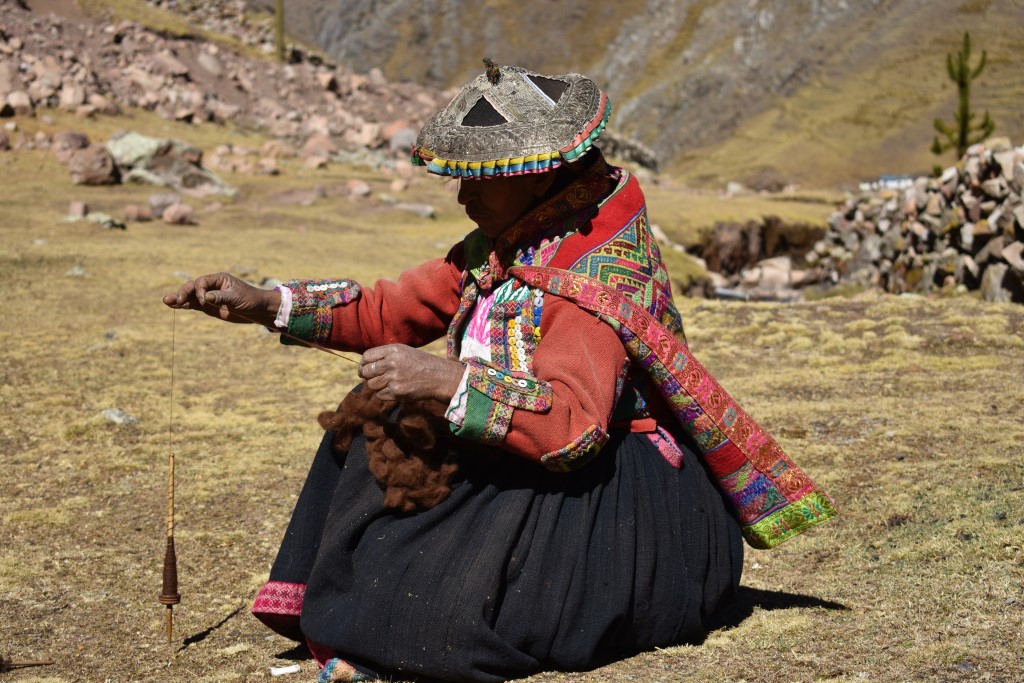About the project

Latin America project is the start of Echoes of the Journey. With an idea of understanding how responsible tourism is being developed in Latin America, we embarked on a journey through this region, cooperating with initiatives that approach travel activities with responsibility on multiple levels. Over the course of 10 months, we have worked with a wide range of organizations that use tourism as an important tool for local development and as a means for social, economic and environmental improvement.
To all of them, we help in our areas of expertise, and, at the same time, we learn from them about good practices they apply in their work. As our network of partnerships grew, our focus has become rural and community-led initiatives where tourism has a strong impact on the livelihoods of local people. Besides rural tourism businesses, we worked closely with different eco-lodges and hotels – lodging services at different levels of sustainability, some being advanced in this area and some at the beginning. Furthermore, an important part of our work is with private natural reserves, a legal form new to us and not present so much in some other parts of the world. These bodies combine significant land and wilderness protection efforts with tourism activity, therefore being developed under particular conditions and rules.
No matter the type of organization we cooperate with, the principal effort of our work is to help organizations apply a series of good sustainable practices and approach tourism development in a responsible way.
The impact of our Latin America project since April 2018 can be summarized by these numbers:
- 10 countries visited: Uruguay, Argentina, Chile, Bolivia, Peru, Ecuador, Colombia, Panama, Costa Rica, Mexico
- 80 important players from the sector met and interviewed
- A network of more than 100 professionals worldwide established
- More than 40 initiatives with whom we collaborated with
- 8 different areas of tourism:
hotels and lodges, tour operators, private nature reserves, consultancy, universities, NGO, rural and indigenous communities, networks for local and regional cooperation - 8 reportage in local media
- 24 articles on our website
Some of the initiatives we collaborated with and the results achieved:
- Secretary of Tourism Villa La Angostura (Argentina): Development of sustainable tourism strategy on a destination level through participative processes and focus groups with local stakeholders’ groups; Semi-structured interviews about future tourism development for destination Villa la Angostura
- Andean Lodges (Peru): “The Apu Ausangate” trail; cultural and adventure route in the Peruvian Andes, part of the Qhapaq Ñan (vast Inca road network, UNESCO World Heritage Site); Analysis and suggestions of good practices in the management of cultural routes such as the Cultural Routes Program of the Council of Europe; Advice on strengthening the commercial network on European B2C markets; Creation of online and offline promotional and marketing material; informal interviews with the participants to assess the level of satisfaction and propose opportunities for improvement
- Totonal viajes (Mexico): Evaluation of the economic and social impact of tourism activity on local indigenous communities’ livelihoods; Support in the development of collaborative networks with stakeholder groups and indigenous communities; Qualitative field-research activities with participatory methodologies, including interviews, focus groups, action research and co-creation of community maps; Design of new cultural and sustainable tourism experiences to valorise local Mayan cultural heritage through participative processes with local communities
- Expediciones Sierra Norte (Mexico): adventure tourism and ecotourism company created by six indigenous communities of Oaxaca, recognized by the Tourism for Tomorrow Award as the best community project in the world in 2016. Support in the creation of promotional and marketing material; Connection with international tour operators to reach new markets
- Monteverde Community Fund and Monteverde Chamber of Tourism (Costa Rica): Assistance in the development of the historical-cultural tour “Monteverde Footprints” by integrating various initiatives in the destination into the walking itinerary (first factory in the country, research centre, women’s cooperative, organic coffee producers, etc.) to benefit the local community; Involvement of private actors (hotels, local and national tour operators) in development of commercial and promotional activities for the tour
- Zafra Private Nature Reserve and San Rafael Local Tourism Network (Colombia): Work with the network of local stakeholders through focus groups and other participatory processes for the development of the tourism offer; Creation of sustainable tourism experiences; Assistance with branding and positioning of San Rafael as “green” destination
- Guias and Baquianos Travel (Colombia): Assessment of the overall sustainability of the cultural route “Ciudad Perdida Trail”; Consultancy in the development of new activities to valorise cultural heritage of local indigenous groups, analysis of critical issues and opportunities to improve coordination between the groups involved in the journey (farmers, indigenous groups and local tour operators) to optimize the tourist experience; Analysis and suggestions of good practices in the management of cultural routes such as the Cultural Routes Program of the Council of Europe
- Huasquila ecolodge (Ecuador): Evaluation of the economic, social and environmental impact of tourism activity on local indigenous communities and natural environment; Comparative analysis of the implemented best practices against sustainable tourism certification and standards
- Jocotoco Foundation (Ecuador): Implementation of best practices in private nature reserves; Design of tourism itineraries for tour operator Jocotours connecting multiple nature reserves and rural indigenous communities
- Coclè Tourism and private nature reserve Villa Tavida (Panama): Mapping of the local actors and local cultural heritage; Assistance with the creation of the regional stakeholders’ network for the development of sustainable tourism offers, tourism itineraries and events